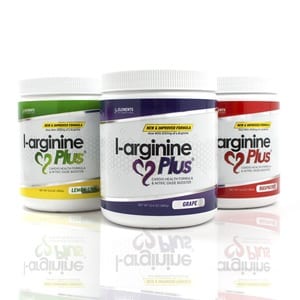It seems we could all use an energy boost. We may be tempted to reach for an energy drink, but there are better, more natural ways to keep your energy up. The following foods, supplements, and lifestyle choices are natural energy boosters to help you through your day.
18 Energy-Boosting Foods
Many of these foods have things in common. They have complex carbohydrates, high protein, healthy fats, or low sugar to help you have sustained energy throughout the day. They also nutrients like B vitamins, manganese, zinc, and iron. You can look for the patterns and add food to the list!
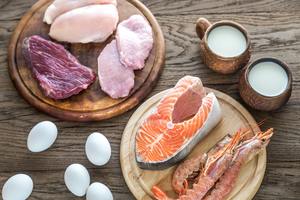
Eggs
Eggs are a good source of protein and can satisfy hunger. They also contain leucine, an amino acid that plays a part in energy production and helps break down fat to produce energy. [1]
Fatty Fish
Fatty fish like sardines, salmon, and tuna are high in protein and omega-3—both of which take longer to break down. They also contain B vitamins that reduce inflammation (which can cause fatigue) and help produce red blood cells and iron. [2][2][4]
Chicken
Chicken is a great way to get lean protein. Protein takes longer for your body to break down, so it provides more lasting energy.
Oatmeal
Complex carbohydrates like oatmeal are filling and release energy slowly. It also has beta-glucan, which slows down digestion and absorption of sugar into your bloodstream. [5]
Brown rice
Another complex carb, brown rice is full of nutrients. It also has a low glycemic index—which is a fancy way of saying it doesn’t have simple sugars that get quickly absorbed into your bloodstream. [6] It also has manganese which helps enzymes break down carbs and proteins. [7]
Quinoa
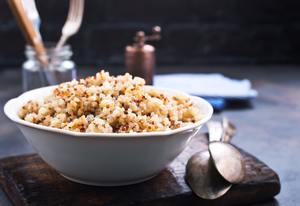
Full of protein, this complex carb is a great energy-booster. Like brown rice, it has a low glycemic index. It also contains manganese, magnesium, and folate, which are all important in producing energy. [8][9][10]
Beans
Beans are full of protein, carbs, fiber, and helpful nutrients. Black beans and black-eyed peas are great examples; they also contain folic acid, manganese, and magnesium. [11]
Edamame is a low-calorie option that is high in protein. Like other beans, it has manganese and folate. Molybdenum, a nutrient that works to break down other nutrients for energy. [12]
Lentils are another good example. Along with protein, carbs, and fiber, they also have manganese, zinc, and iron. These help control your blood sugar levels. In addition, they are a good source of l-arginine, which helps improve circulation. [13]
Nuts
Nuts are another great source of protein, carbs, and fiber. Walnuts, almonds, and cashews are great examples. However, they tend to be high calorie for their size. Some nuts contain omega-3 and omega-6 fatty acids. These and antioxidants help reduce inflammation and boost energy. [14][15]
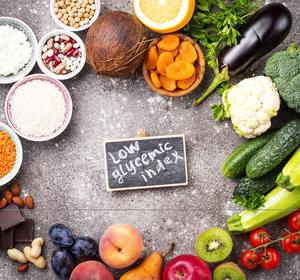 Berries
Berries
Berries can be a sweet treat but won’t cause as much of a sugar crash (like refined sugar products will). Many also contain antioxidants and helpful nutrients that you can’t get from soda.
Goji Berries are known to help fight fatigue. In addition, they have antioxidants, vitamins, minerals, and are rich in fiber. [16][17]
Seeds
Seeds like chia seeds, flaxseed, and pumpkin seed are great sources of protein and fiber, which provides a sustained energy release. Many contain omega-3s, which help fight inflammation and are important in cell function. [18] They have been known to help fight fatigue. [19] [20]
Dark chocolate
If you need to satisfy your sweet tooth, dark chocolate is a good way to go. With less sugar and higher cocoa content, it won’t give you a sugar crash like other chocolate bars. Antioxidants and caffeine can also help with alertness and boost mood.
Sweet potatoes
Sweet potatoes are loaded with carbs and fiber. They also have manganese, which helps break down nutrients. [21] In addition, they contain vitamin A, which may play a role in synthesis of mitochondria (the part of your cell that produces energy).
Apples
Apples contain fiber and carbs, which means it’s a sweet treat with a slow release of energy. [24] They also have antioxidants that slow digestion. [25] The strength is in the fiber, so be sure to avoid juices and purees.
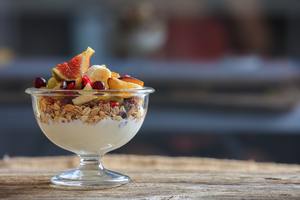
Yogurt
The carbs found in yogurt are simple sugars—mainly lactose and galactose. These make for quick and easy energy. Thankfully, yogurt is also loaded with protein, which counteracts the quick sugars and slows digestion. [26]
Hummus
Hummus is usually made from chickpeas, sesame seed paste, oil, and lemon. Chickpeas contain fiber and complex carbs while the sesame seed paste and oil have healthy fats. So, you won’t get any sugar crashes here.
Avocados
Avocados are also a great source of healthy fats and contain fiber (which accounts for 80% of carbs in avocados). B vitamins in avocados are also helpful for mitochondria, which control cellular energy. [27]
Oranges
Oranges are well-known for containing vitamin C, which is an antioxidant that can protect your molecules from oxidative stress (when free radical molecules and antioxidants are imbalanced in your body). Oxidative stress can also cause fatigue. A simple orange and other vitamin-C foods like red peppers and broccoli can help prevent that.
Leafy greens
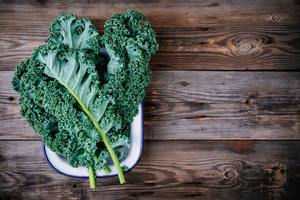
Those dark, leafy greens like spinach and kale have so many vitamins and nutrients that can naturally boost your energy. They contain iron, calcium, magnesium and potassium as well as vitamins A, C, E, and K. In addition, they are a great source of folic acid, antioxidants, and fiber. These superfoods can do a lot for you, including fighting fatigue. [28]
Beets
Beets contain dietary nitrates which convert to nitric oxide inside your body. Nitric oxide opens and relaxes your blood vessels, which improves circulation. Athletes drink beet juice to increase endurance. [29] They are also a great source of carbs, fiber, and sugar.
Energy-Boosting Beverages
Water!
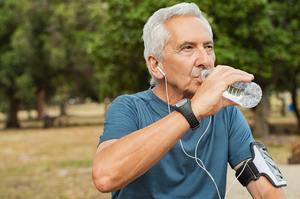 In order to get all the energy benefits from your food, you must stay hydrated. Water is important for cellular function because it carries nutrients to cells and gets rid of waste. Also, when you have more water in your body, you don’t retain as much fat, sugar, salt, cholesterol and calories. Stay hydrated to stay energized!
In order to get all the energy benefits from your food, you must stay hydrated. Water is important for cellular function because it carries nutrients to cells and gets rid of waste. Also, when you have more water in your body, you don’t retain as much fat, sugar, salt, cholesterol and calories. Stay hydrated to stay energized!
Coffee
Coffee is well-known for its caffeine content. Caffeine has the unique ability to pass from the bloodstream to the brain. It helps suppress adenosine (which quiets the central nervous system and reduces the heartrate) and increases epinephrine, which stimulates the body and brain. As a result, it may help you feel more focused and alert.
Green Tea
Another caffeinated beverage, green tea contains antioxidants and l-theanine. L-theanine is a relaxant and helps balance out caffeine’s energy burst. In addition, it helps break down fat and releases norepinephrine.
For drinks that don’t have l-theanine, supplementing is possible. Studies have found that taking l-theanine along with caffeine helps people avoid negative effects of caffeine (being nervous or jittery and then crashing later). [30][31][32]
Foods to Avoid
Steer clear of foods high in sugar like sodas and candy. These will give you a short boost but will then make you crash later. If you need a sweet treat, stick with fruit, yogurt, or a little dark chocolate.
Supplements for Energy
L-arginine
L-arginine is an amino acid. One of the building blocks of protein, it also assists with muscle growth, wound healing, tissue repair, and carrying out waste.
When you consume l-arginine, it becomes nitric oxide (NO) in your body. As NO gets into your bloodstream, it signals your blood vessels walls to relax and widen. This improves circulation and lowers your blood pressure. It may also reduce lactate in the muscles, which helps during intense exercise.
Athletes are primary consumers of l-arginine, as it can enhance tolerance and lengthen the time to exhaustion. [33][34][35]
Be sure to check out L-arginine Plus, which supports circulation and cardiovascular health for a great price!
L-citrulline
L-citrulline is also an amino acid and has very similar effects to l-arginine. In fact, l-citrulline becomes l-arginine when you consume it. Therefore, it also increases NO and helps your blood vessels open.
Like l-arginine, l-citrulline is often taken by athletes to enhance performance. It can decrease fatigue, increase endurance , and lengthen time to exhaustion [36][37][38]
L-citrulline also helps remove ammonia from the body (which can cause fatigue).
Beetroot Powder
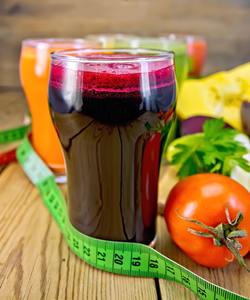
Beets contain dietary nitrates which boost your NO levels in your body. You already know what’s coming next—better blood flow and lower blood pressure. [39][40][41]
Several studies emphasize that beets and beet supplements are a great way to improve endurance and overall performance.
Iron
Iron deficiency can cause fatigue. Your body needs iron to make a protein in your red blood cells called hemoglobin, which delivers oxygen to organs and tissues. Fatigue happens because iron deficiency causes anemia (when you don’t have enough red blood cells to carry oxygen to all parts of the body).
Sources of iron include meat and seafood. Most people get enough iron from their diet, but certain groups such as vegans and pregnant women may need iron supplements.
Because too much iron can also be a danger, talk with your doctor before taking an iron supplement.
Ashwagandha
Ashwagandha is a plant used as an adaptogen—or something that helps you be more resilient to physical and mental stress. [42] One study shows that ashwagandha can lower cortisol (the stress hormone) by as much as 28%. [43] It may also help reduce exercise fatigue and boost energy. [44]
CoQ10
CoQ10 is short for Coenzyme Q10, which your cells use to make energy and protect themselves from oxidative damage. Low levels of CoQ10 can cause fatigue. This is more common among people with heart failure, type 2 diabetes certain cancers, or who take statins for cholesterol.
Supplementing with CoQ10 can help people who have a deficiency, but doesn’t necessarily increase energy for those who don’t.
Melatonin

It is difficult to be energized without plenty of sleep. Melatonin is the body’s natural sleep hormone, but many people still suffer from poor sleep or insomnia. Supplementing with melatonin may help you get to sleep and stay asleep, getting the 7 – 9 hours the average adult needs.
Rhodolia Rosea
Rhodolia rosea is an herb for stress management. The body uses it as an adaptogen, a substance that helps with stress. One review of 11 studies showed that rhodiola may improve fatigue. [45] It can also improve mental fatigue and depression. [46][47]
Creatine
Creatine helps maintain your ATP levels. ATP is adenosine triphosphate which is important for energy. When your body uses ATP, it loses a phosphate and becomes ADP (adenosine diphosphate). Creatine simply gives ADP another phosphate so it can function as ATP again.
As a result, this is best for a quick energy burst. It is ideal for a short and intense workout or even (such as a sprint, shotput, weightlifting or jumping).
Tyrosine
This is an amino acid which is found in many high-protein foods. It is a building block of neurotransmitters—messengers for the brain. These neurotransmitters can decline due to demanding physical or mental activities. Tyrosine supplements can boost alertness, energy, and memory. Like other supplements, tyrosine is most helpful to people who are tyrosine deficient.
Lifestyle Changes
Exercise Regularly – Boost Energy
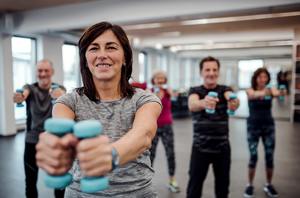 Don’t wait for the perfect time to get moving. Exercise is a great way to keep your energy up.
Don’t wait for the perfect time to get moving. Exercise is a great way to keep your energy up.
The studies agree. One study published in Psychological Bulletin analyzed 70 studies on exercise and fatigue. In total, there were more than 6,800 participants. Over 90% of the studies showed that sedentary people who engaged in regular physical activity reported less fatigue. [50]
Exercise naturally also makes your body produce nitric oxide, which (like l-arginine and beets) improves your circulation.
There are more benefits—such as the release of mood-boosting hormones. For example, you can start today and naturally improve your energy by taking a jog, playing a sport, or swimming at your local pool.
Get plenty of sleep
Naturally, not getting enough sleep will make you fatigued—especially if you consistently get poor sleep.
Sleep is necessary for your body to manage many different functions like your immune system, body temperature, hormone levels, and appetite. So, when these functions aren’t working properly, it saps your energy. A good night’s sleep can boost your energy and your mood.
If you have trouble sleeping, talk with your doctor or consider a supplement such as melatonin to help you sleep.
The Bottom Line
In conclusion, there are many ways you can naturally boost your energy–through food, supplements, and lifestyle choices. If you still feel fatigued even after eating right, getting sleep, and exercising, talk with your doctor.
Resources
- http://nutritiondata.self.com/facts/dairy-and-egg-products/111/2
- https://www.ncbi.nlm.nih.gov/pubmed/24814598
- https://www.ncbi.nlm.nih.gov/pubmed/22412148
- https://www.ncbi.nlm.nih.gov/pubmed/17927497/
- https://www.ncbi.nlm.nih.gov/pubmed/18633670
- https://www.ncbi.nlm.nih.gov/pubmed/17127465
- https://www.ncbi.nlm.nih.gov/pubmed/22922155
- https://www.ncbi.nlm.nih.gov/pubmed/22922155
- https://www.ncbi.nlm.nih.gov/pubmed/26404370/
- https://www.ncbi.nlm.nih.gov/pubmed/26451605
- http://nutritiondata.self.com/facts/legumes-and-legume-products/4284/2
- https://www.ncbi.nlm.nih.gov/pubmed/23539623
- https://www.sciencedirect.com/science/article/abs/pii/S0315546388707701?via%3Dihub
- https://www.ncbi.nlm.nih.gov/pubmed/22412148
- https://www.ncbi.nlm.nih.gov/pubmed/18296370
- https://www.ncbi.nlm.nih.gov/pubmed/19185773
- https://www.ncbi.nlm.nih.gov/pubmed/18447631
- https://www.ncbi.nlm.nih.gov/pubmed/26177664
- https://www.ncbi.nlm.nih.gov/pubmed/22412148 ,
- https://www.ncbi.nlm.nih.gov/pubmed/25373098
- https://www.ncbi.nlm.nih.gov/pubmed/22922155
- http://nutritiondata.self.com/facts/vegetables-and-vegetable-products/2667/2 ,
- https://www.nutraingredients.com/Article/2010/03/11/Vitamin-A-s-role-in-energy-production-identified-by-scientists
- https://www.ncbi.nlm.nih.gov/pubmed/19335713
- https://www.ncbi.nlm.nih.gov/pubmed/20480025
- https://www.ncbi.nlm.nih.gov/pubmed/2679037
- https://www.ncbi.nlm.nih.gov/pubmed/16765926
- https://www.ncbi.nlm.nih.gov/pubmed/24814598
- https://www.ncbi.nlm.nih.gov/pubmed/25412154
- https://www.ncbi.nlm.nih.gov/pubmed/18006208
- https://www.ncbi.nlm.nih.gov/pubmed/24946991
- https://www.ncbi.nlm.nih.gov/pubmed/26869148
- https://www.ncbi.nlm.nih.gov/pubmed/20724562
- https://www.ncbi.nlm.nih.gov/pmc/articles/PMC4135062/#CIT0002
- https://www.ncbi.nlm.nih.gov/pmc/articles/PMC4135062/
- https://www.ncbi.nlm.nih.gov/pubmed/20386132
- https://www.ncbi.nlm.nih.gov/pubmed/26023227
- https://europepmc.org/abstract/med/16679980
- https://www.ncbi.nlm.nih.gov/pubmed/20466802/
- https://www.ncbi.nlm.nih.gov/pubmed/23580439
- https://www.ncbi.nlm.nih.gov/pubmed/27600147
- https://www.ncbi.nlm.nih.gov/pubmed/10956379/
- https://www.ncbi.nlm.nih.gov/pubmed/23439798
- https://www.ncbi.nlm.nih.gov/pmc/articles/PMC3545242/
- https://www.ncbi.nlm.nih.gov/pubmed/21036578
- https://www.ncbi.nlm.nih.gov/pmc/articles/PMC3541197/
- https://www.ncbi.nlm.nih.gov/pmc/articles/PMC3181771/
- https://link.springer.com/article/10.1007%2Fs40279-016-0571-4
- https://www.ncbi.nlm.nih.gov/pubmed/26424423 https://www.ncbi.nlm.nih.gov/pubmed/17585971 https://www.ncbi.nlm.nih.gov/pubmed/7794222
- https://www.sciencedaily.com/releases/2006/11/061101151005.htm


